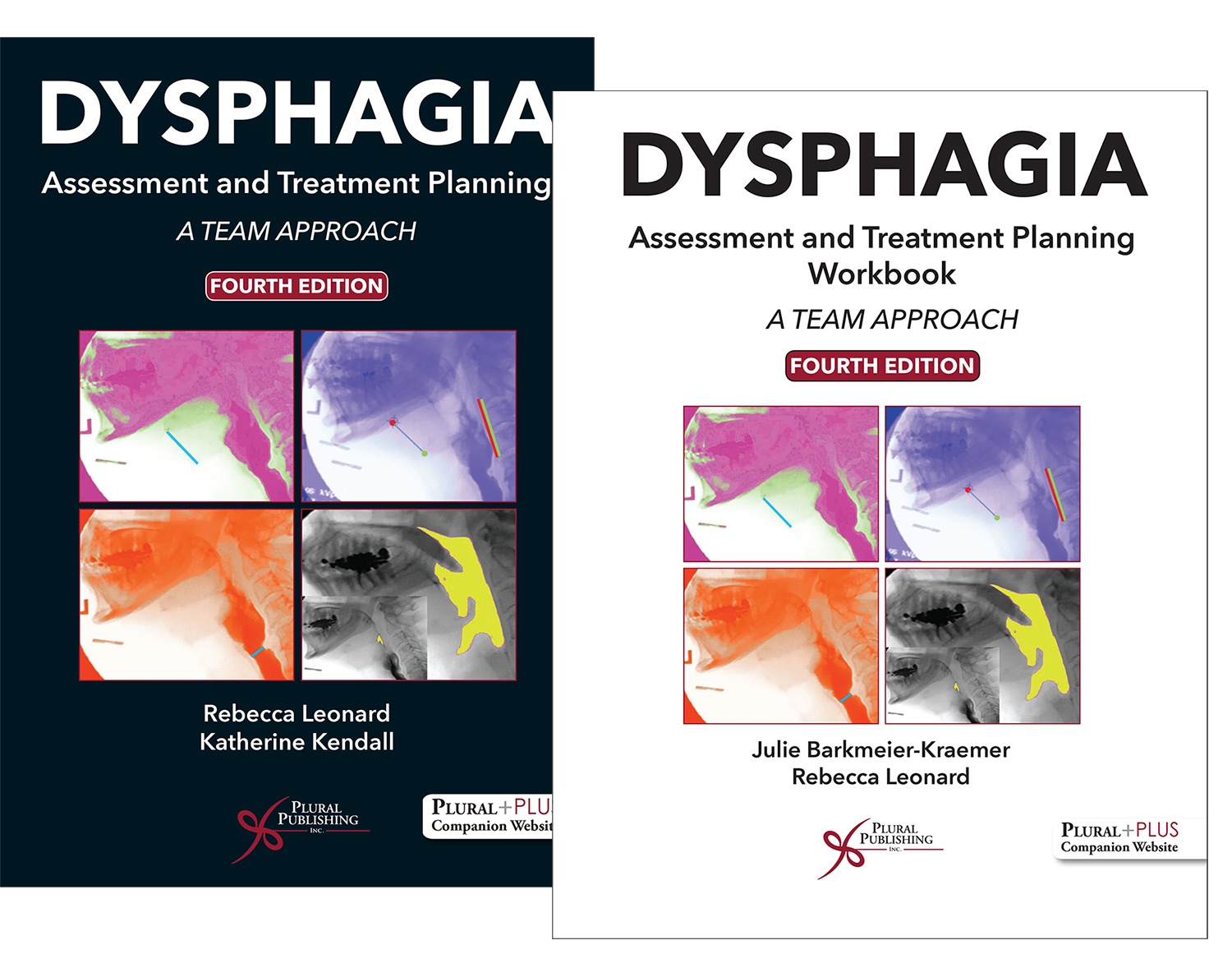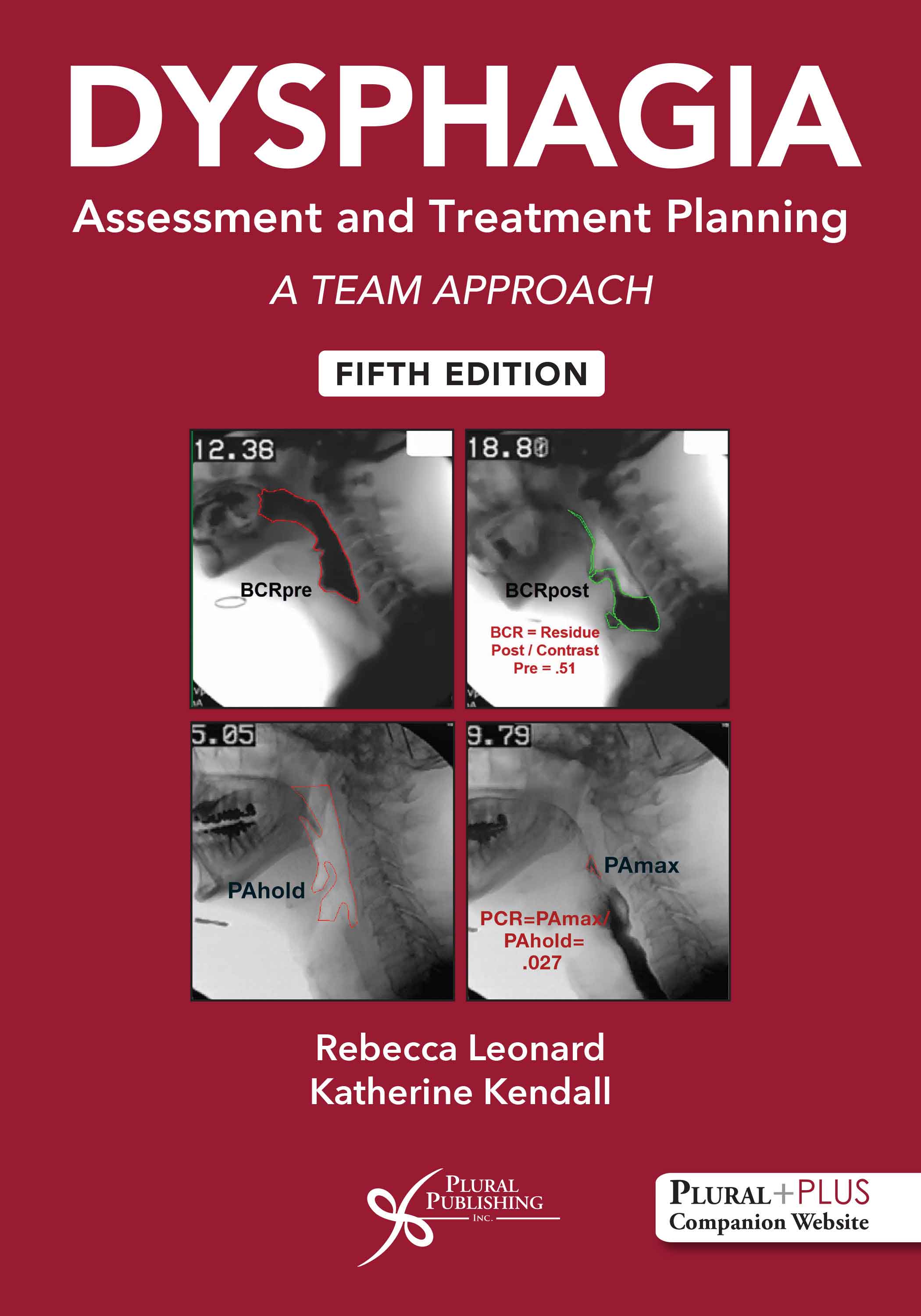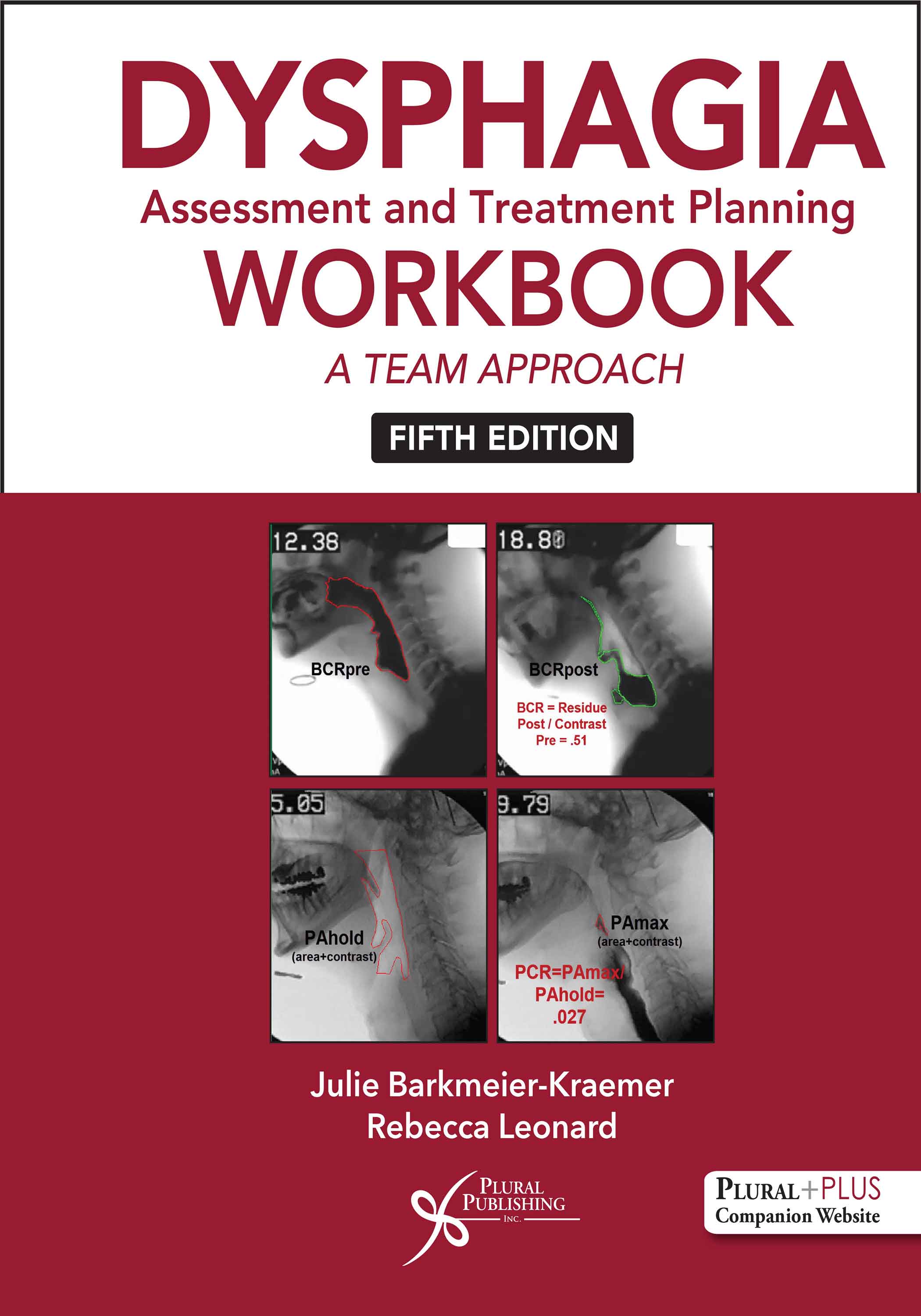
Dysphagia Assessment and Treatment Planning: A Team Approach Bundle (Textbook and Workbook).
Overview
Dysphagia Assessment and Treatment Planning: A Team Approach, Fourth Edition is an ideal resource for dysphagia courses in speech-language pathology graduate programs. The unique value of this book is its multidisciplinary approach. Too often, speech-language pathologists function clinically with insufficient interaction with, or understanding of, the roles of other professionals involved with their patients. This text incorporates information pertinent to the roles, tools, and views of a multidisciplinary dysphagia team, including physicians, speech pathologists, nurse specialists, and dietitians, who work together on a daily basis.
In this fourth edition, the organization has changed, with chapters concerned with assessment techniques coming first, and material addressing special populations comprising the latter portion of the text. This reflects what is likely a more typical approach to dysphagia in graduate courses concerned with the topic and one that complements teaching of the subject matter.
Updates to the fourth edition include:
- The treatment chapter (Chapter 10) has been updated to reflect the current status of therapeutic approaches previously considered in treating dysphagic patients.
- Chapters dealing with nursing (Chapter 11) and nutrition (Chapter 12) have been updated to incorporate the latest recommendations in nursing care and dietary considerations for patients experiencing dysphagia.
- The pediatrics chapter (Chapter 13) has been expanded to address specific problems and needs not only of infants but also the entire spectrum of childhood.
- A chapter devoted to the esophagus (Chapter 14) addresses new information on the management of esophageal disorders, including the novel double-balloon dilation of the UES and a device for manually opening the upper esophagus.
- Chapters addressing special populations, including neurogenic disease (Chapter 15) and head and neck cancer (Chapter 16), incorporate the latest information regarding dysphagia and approaches to treatment pertinent to each group.
- A brand-new addition to the book is Chapter 18, which addresses dysphagia associated with alterations to the spine as a consequence of either disease or surgery.
- A major new inclusion in the current edition are materials utilizing a new software program, called "Swallowtail," that permits the all-in-one measurement, display and storage of timing, displacement, and other measures from fluoroscopic studies.
The textbook now comes with access to a PluralPlus companion website that includes videos of patient studies that were selected to represent impairments typically observed in clinical practice (inpatient and outpatient). Other media clips illustrate each instrumental assessment technique introduced in the book (e.g., endoscopic, transnasal esophagoscopy, high-resolution manometry), performed on a variety of dysphagic patients. Additional resources for instructors include lecture slides for each chapter and an image bank.
Also available is a separate companion workbook, Dysphagia Assessment and Treatment Planning Workbook, Fourth Edition, that includes practical exercises accompanying each chapter. The exercises are designed to clarify and expand on information presented in the text and should be of interest not only to students but to practicing clinicians hoping to add new skills to their repertoires. The workbook has been thoroughly updated to reflect the new organization and content of the textbook.
Books featured in this bundle

Dysphagia Assessment and Treatment Planning: A Team Approach
Fifth Edition
Rebecca Leonard, Katherine Kendall
Details: 481 pages, Full Color, Hardcover, 7" x 10"
ISBN13: 978-1-63550-473-6
© 2025 | Available

Dysphagia Assessment and Treatment Planning Workbook: A Team Approach
Fifth Edition
Julie Barkmeier-Kraemer, Rebecca Leonard
Details: 275 pages, B&W, Spiral, 8.5" x 11"
ISBN13: 978-1-63550-496-5
© 2025 | Available
